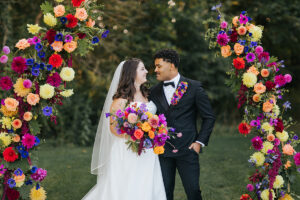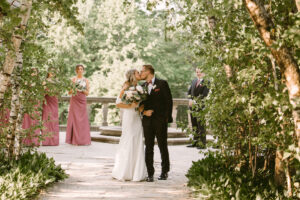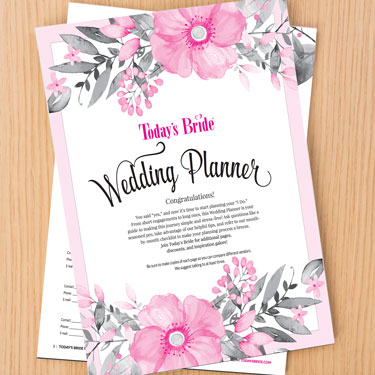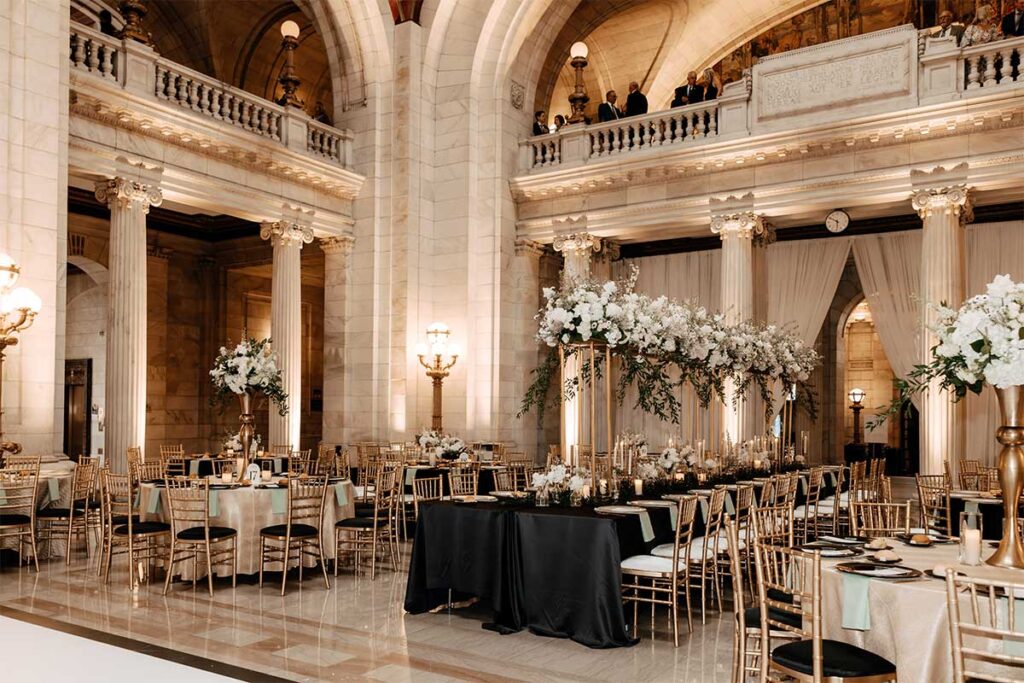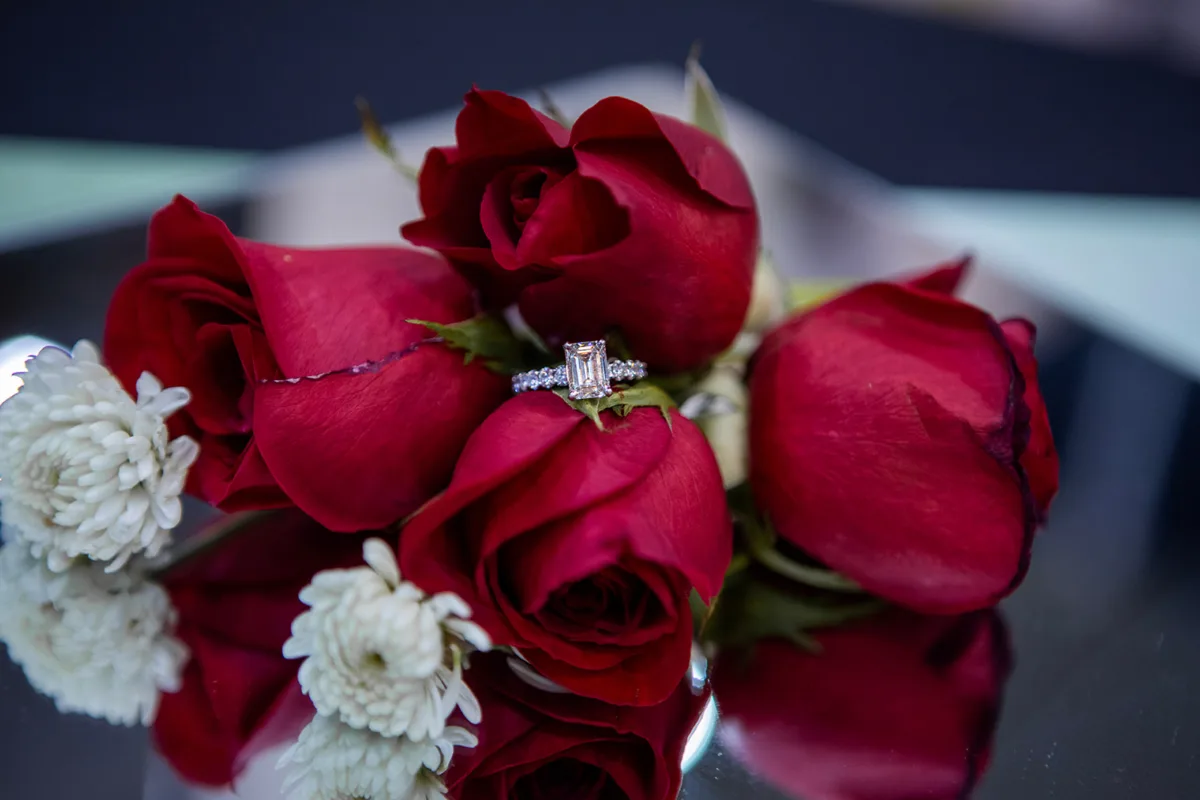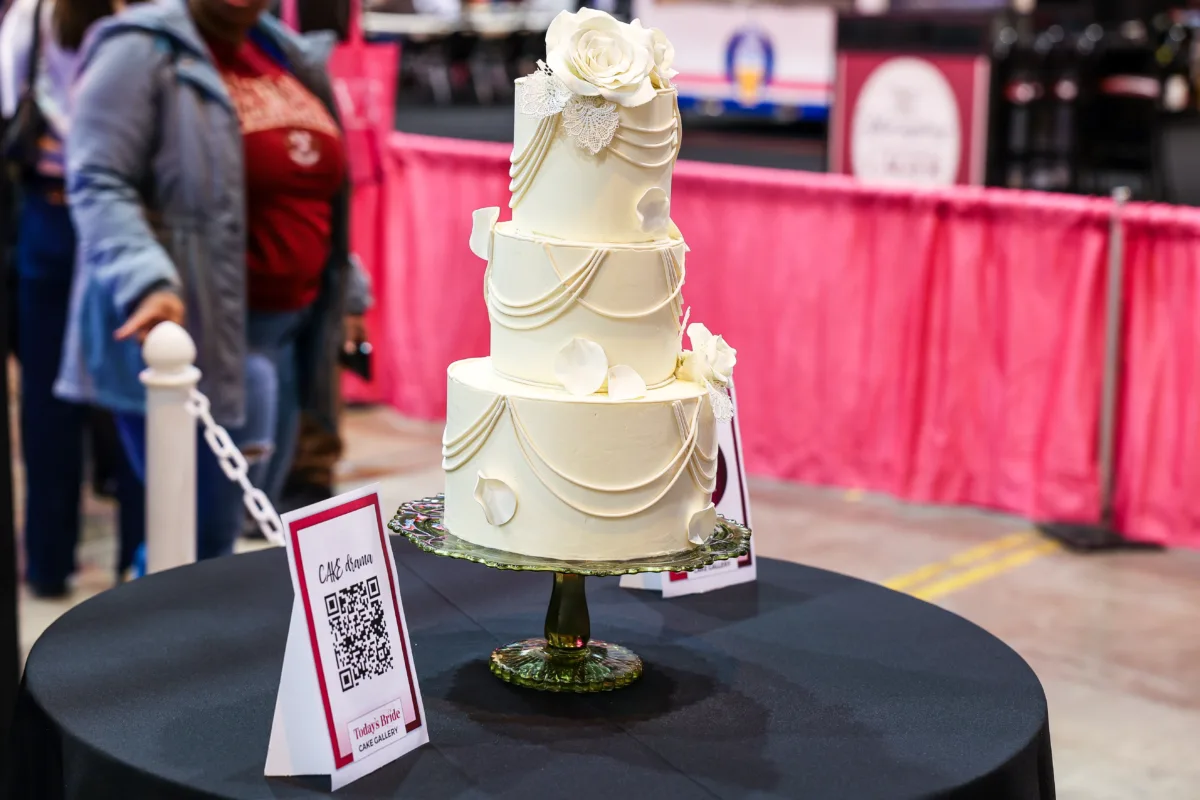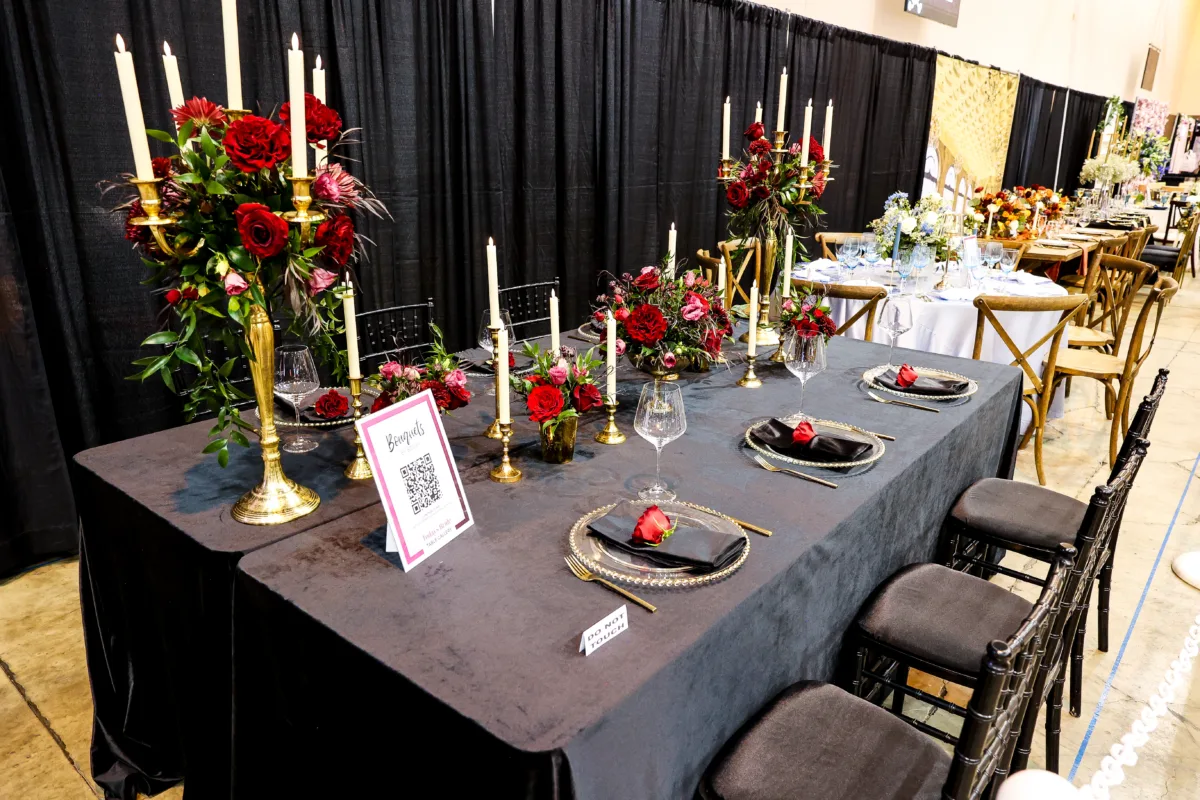As an LGBTQ couple, you may have a few questions about your wedding. How does tradition fit in to your planning? Who should propose? Do you have to wear white? Who walks down the aisle? How do you plan a shower? The answers to these questions will help you plan the celebration of a lifetime.
The Proposal
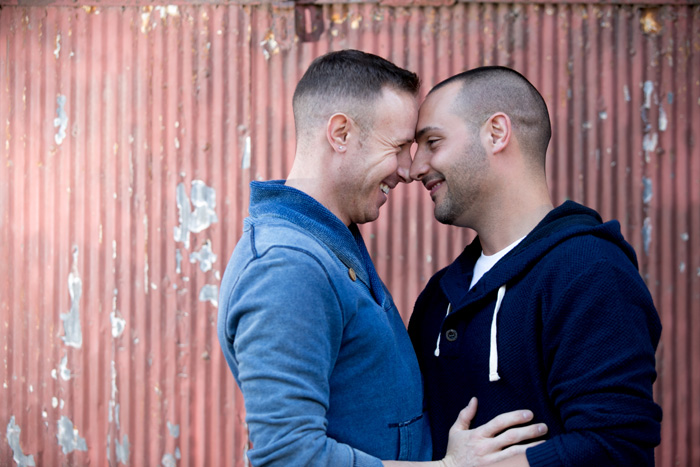
When it comes to popping the big question, you may have already had a conversation about marriage. If that’s the case, hopefully you have an idea of what to expect. If you haven’t had this conversation yet, both of you may be waiting for the other to propose. It’s important to discuss what your expectations are. One person can propose on a romantic Friday evening and the other can plan to propose the next day at mid-afternoon outing. They could both be a surprise or they can be expected. There could even be no proposal at all! Some couples may mutually agree that it’s time for them to marry and simply set a date.
If you are planning a proposal, who gets the ring? That’s up to you! You could each present rings to each other upon engagement or wait for the wedding day; you could propose without a ring, or you could even get tattoos on your ring finger that symbolize your lifelong commitment to each other!
Pre-Ceremony
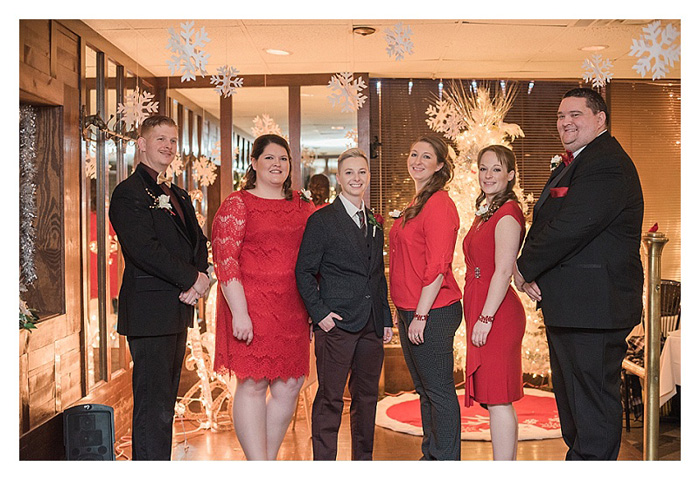
Choosing your Wedding Party
Whether you’re gay or hetero, there is no rule that dictates that you can only have women or only have men in your wedding party. Your party should consist of the people that are closest to you – your truest friends. If those friends happen to be all female or all male, that’s fine! But if you want to include the opposite sex in your wedding party, then by all means, do it! Don’t feel restricted by tradition.
That being said, the attire of your wedding party should be cohesive. The outfits don’t need to match each other exactly, but as long as they share some commonalities – like color or color scheme, silhouette, and length. Just like with the mismatched bridesmaid dresses trend, suits and dresses don’t have to match exact colors as long as they are within the same schematic.
Because you and your fiance may have separate parties, you can each choose to represent one color from your overall scheme or differentiate your attire in a different way. For instance, one party may wear lavender while the other wears plum. Or, your party could wear mismatched dresses and gray suits while their party wears matching skirts and tops and black suits.
Planning the Shower
We recommend that any couple should choose only an engagement party or a bridal shower if they’re getting married in less than a year. In this case, you could simply throw a party to celebrate your engagement. Just be sure to be registered before sending out invites so you can indicate that this is a gift-giving occasion by including your registry list. If you’d prefer to throw a shower with games, prizes, gifts, etc., then you can decide whether you want both you and your fiancé to be present or if you’d rather host separate parties. Either way is completely acceptable, but be aware that, while some guests may be invited to both parties, they should only be expected to give one gift.
Attire

When it comes to choosing your wedding attire, keep in mind that this is your day. You should wear what you feel comfortable in and what makes you look your best. If you absolutely despise dresses or are rarely seen in heels, don’t subject yourself to these “traditional” staples! Create a look that screams “you!” Whether that’s a maxi dress and strappy sandals or suspenders with jeans – you do you. We do suggest wearing something slightly more formal simply to isolate this day from any other and to stand out in photos, but that’s completely your choice!
There are ways to stray from tradition even if you do decide to wear wedding dress. Instead of white, consider adding a pop of color with a dip-dyed gown or underskirt! Blush dresses are all the rage right now, or you can choose a gown in the color that looks best with your skin tone. If you want white, consider a tea or knee length dress, a high-low, or a convertible gown! For other wedding dress alternatives, check out this blog!
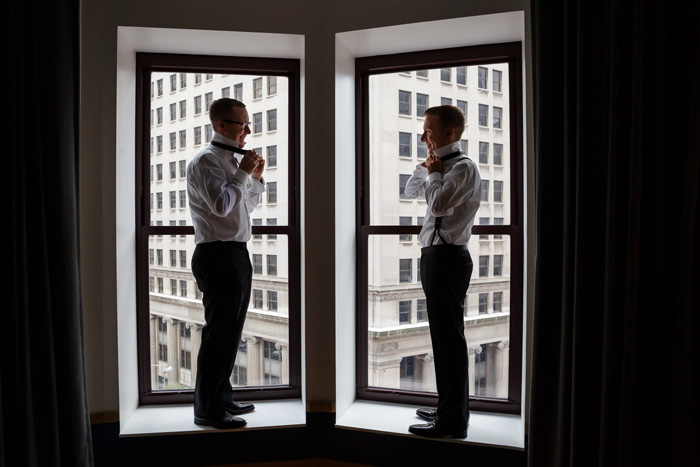
Can he or she help me get ready?
There is no right or wrong answer to this question. Some of the benefits of getting ready separately is the suspense and the suprise. The suspense of waiting will make this day all that more special and memorable for you and your loved one. The surprise of seeing each other for the first time that day completely done-up and looking flawless is an emotional and beautiful moment you’ll share forever. However, waking up by each other’s side and getting ready together will help you envision waking up together every day for the rest of your life and may make this day – the beginning of your forever – even more special.
If you’re deciding whether or not you can help each other pick out your wedding attire, we’ve laid out some pros and cons!
Other planning advice
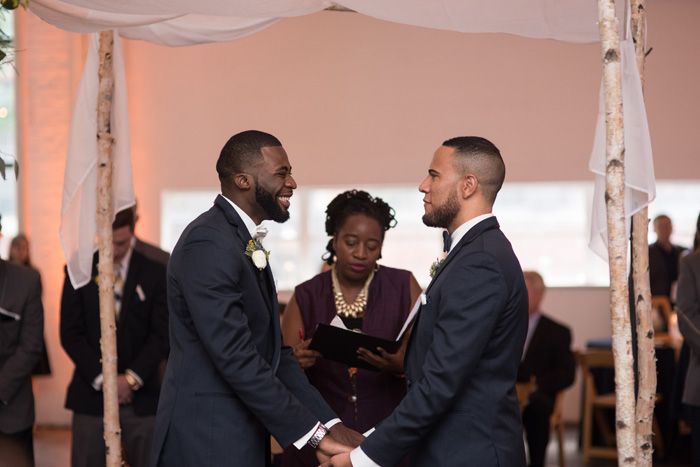
Changing Name
Since same-sex marriage is legal in every state of the USA (woohoo!) changing your name will be the same as any heterosexual marriage. You can download a printable to see how to go about doing that in your county. Deciding whose name to take – or if you should change your name at all – is the difficult question. You can each decide to take each other’s name and hyphenate it to represent both of your family histories. One of you may decide to take the other’s name and drop your own last name. Or you may decide to each keep your own name. One factor to consider is the possibility of children in your future. If you each keep your own name, whose name will he or she be given? This is something you should discuss as a couple to decide what’s important to you.
Inviting Family
Unfortunately, some LGBT couples may still deal with family members who don’t accept their sexuality. If this is the case, you may be questioning whether or not to invite them. While we think it’s always best to be the bigger person and extend an invite, there are a few questions to consider.
Will this person cause drama?
If you expect that this person will cause a scene at your wedding celebration, they probably shouldn’t get an invite. Your day should be focused on you – you don’t want them stealing the scene at this beautiful occasion.
Will this person’s presence make you happy?
Your wedding may not seem like a wedding if your mother, grandparents, or uncle doesn’t attend. If you know that your wedding day just won’t be complete without your entire family or you think this person can put aside his or her differences for the day to make you happy, then invite them! If you know that they’ll ruin your day and make it all about them, tear you down, or hurt your feelings, an invite should not be extended.
No Rules
The best part about planning an LGBTQ wedding is that there are no rules! You can completely craft this day around you! Create your own ceremonial rituals, choose to invite the people you want there and the people you want to stand by your side, wear what you want, celebrate how you want to! For almost any question you have when planning, the answer is almost always “It’s up to you.” There is no tradition, so you can add your own personality to every single detail.
